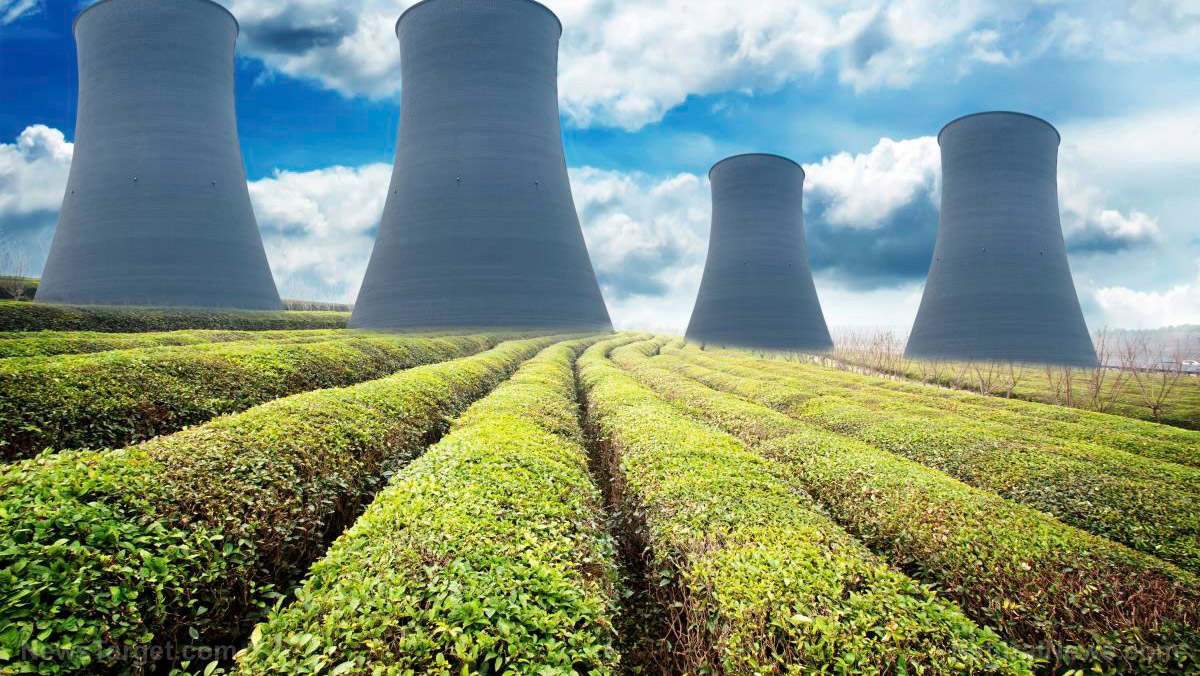Nuclear specialist: Discharge of Fukushima’s radioactive water into Pacific Ocean could last until NEXT CENTURY
05/05/2023 / By Laura Harris

A nuclear specialist remarked that the discharge of radioactive water from the Fukushima Daiichi Nuclear Power Plant could last until next century.
“Those discharges could begin as early as July, possibly later, and continue for many decades. Not just the 30 years – but maybe 50, 60, 70 [or] 80 years. Next century is really possible,” said Shaun Burnie, senior nuclear specialist at Greenpeace East Asia, during a press conference in Seoul.
Experts have advised the Japanese government to gradually release millions of tons of radioactive water from the plant into the Pacific Ocean. They have also insisted that the advanced liquid processing system (ALPS) used to treat the water has removed all radioactive elements. Moreover, the experts have claimed that tritium, which remains in the ALPS-treated water, is safe in small amounts.
But Burnie decried Tokyo’s decision to release the water, arguing that sufficient storage space exists near the now-decommissioned power plant that was damaged in 2011. The senior nuclear specialist deemed the discharge a deliberate choice to unnecessarily pollute and contaminate the environment. (Related: Fukushima is running out of storage tanks for radioactive water … Where will they dump it now?)
Moreover, Burnie cast doubt on the effectiveness of the ALPS treatment in diluting contaminated water. He highlighted that around 70 percent of the water in storage tanks still requires further processing before discharge.
Fukushima water evokes a dirty image, fishermen say
Biological sciences expert Timothy Moussea of the University of South Carolina refuted claims of tritium being harmless, which had been pushed by the Japanese government and the Tokyo Electric Power Company (TEPCO). Moussea dismissed the notion of tritium’s benign nature as “fiction” and explained that the element emits weak beta particles.
“When tritium gets inside the body, it’s at least as dangerous as any of the other radionuclide,” Mousseau said during the press conference at the South Korean capital. “In some cases, it’s more than double as dangerous in terms of the effects of the radiation on the genetic material, on the proteins.”
“The way it works is that the tritium molecule comes inside the cell and ejects an electron. It’s a little bullet. It’s like a bullet coming from a gun. It comes out from the nucleus of the tritium atom. That bullet hits something like the DNA.”
Mousseu explained that the high-energy electron moves slowly, hitting different parts of the body and causing “clustered damage.”
Meanwhile, local fishermen in Fukushima face ongoing challenges as consumers refuse to buy fish, despite repeated tests indicating “safety for consumption.” The lingering public perception that the water is still “dirty” affects the livelihoods of these fishermen.
Lab technicians have consistently assured the public that the fish caught off the coast of Fukushima are safe to eat. Extensive testing has been conducted at the Onahama testing station to monitor radiation levels. Results consistently show that their fish meet Japan’s national standard of less than half the radioactive cesium level allowed and one-twelfth of the U.S. or European Union’s limit for human consumption.
Efforts to educate the public about the rigorous safety measures and the continued monitoring of fish quality are ongoing. However, bridging the gap between scientific assurances and public perception remains a challenge, leaving the fishermen of Fukushima stranded in a sea of uncertainty.
Stay up-to-date with the latest stories about the Fukushima nuclear power plant at Fukushima.news.
Watch this video about the Fukushima Daiichi Nuclear Power Plant.
This video is from PodunkMO. channel on Brighteon.com
More related stories:
Radioactive tritium found present at over 200 times normal levels in Florida Bay.
Nuclear plant workers release unknown amount of radioactive tritium into Mississippi River.
Sources include:
Submit a correction >>
Tagged Under:
beta particles, big government, clean water, deception, Ecology, environment, Fukushima, Japan, lies, nuclear, nuclear disaster, nuclear power plant, ocean health, Pacific Ocean, radiation, radioactive water, toxic water, tritium
This article may contain statements that reflect the opinion of the author
RECENT NEWS & ARTICLES
COPYRIGHT © 2017 BIG GOVERNMENT NEWS




















